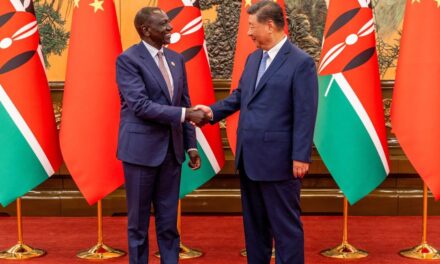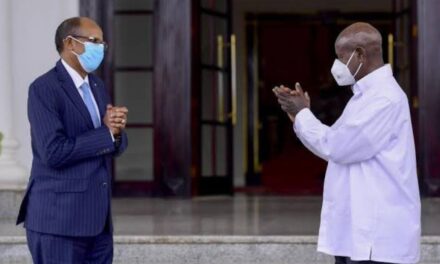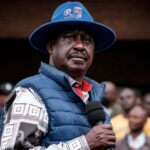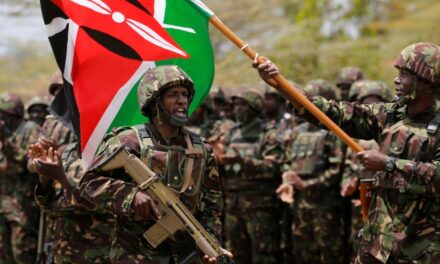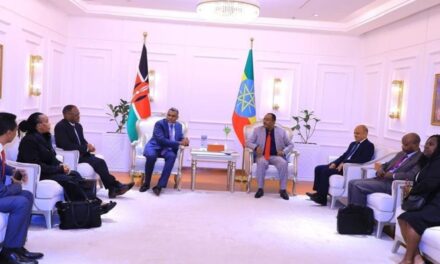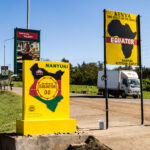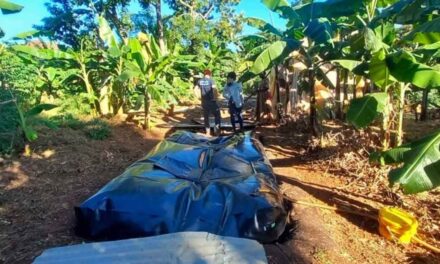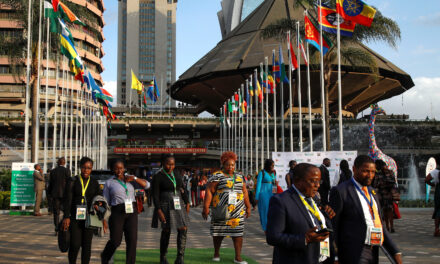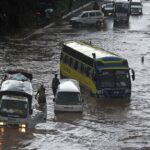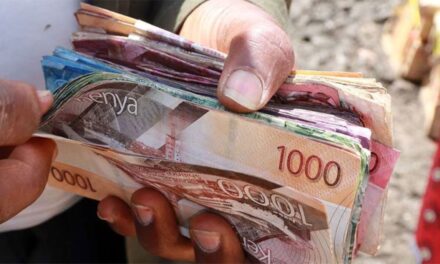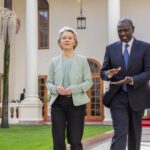
Master Communicator: How Dedan Kimathi Used Letters to Take the Fight to the British


Disasters arrive upon a people in various forms. They can be natural, such as when an earthquake under the sea causes the water to rise and, thousands of kilometers later, an entire city is wiped out by a tsunami.
Or they can be entirely human, such as when a traitor revealed to the British the secret underground location of the Mau Mau’s archives in the Aberdares in 1954. Here, thousands of priceless documents detailing the Mau Mau’s war on the colonial administration had been carefully stored by Field Marshal Dedan Kimathi himself. These documents, and our history, were stolen by the British army, never to be seen again.
The Baraza, a newspaper published in those revolutionary years, reported on the calamity in its edition of August 27 1955: “Early this year, government forces attacked a camp used by Dedan Kimathi in the Aberdare mountains. Among the numerous things found in the camp were many papers and exercise books used by Kimathi to record events. The location of Dedan Kimathi’s camp was discovered by the armed forces as a result of information received in 1954. After the location was known, the camp itself was pinpointed through pictures taken from an aeroplane; then government troops moved in”.
Fortunately, historian Maina wa Kinyatti refused to allow the literary exploits of the Mau Mau to fade into oblivion. So he tracked down other documents that had been hidden by Kenyans in their homes and immortalized them in a book titled Kenya’s Freedom Struggle: The Dedan Kimathi Papers. In doing so, Maina gave a signal service to Kenyan history. These retrieved documents, most of them written by the prolific Kimathi, many others written by other members of the Mau Mau, show a movement that was organized and focused in its pursuit of freedom for Kenyans.
The official name the Mau Mau gave themselves was the Kenya Land and Freedom Army (KLFA). The overall boss of the KLFA was General Mathenge wa Mirugi.
In the beginning, Dedan Kimathi wasn’t the leader; he was merely the Secretary General, appointed largely due to his communications skills. Not his fighting skills. His role was to coordinate the activities of the movement by keeping track of all units and managing communications with everyone. Basically, he was the Mau Mau’s Chief Communications Officer.
Kimathi Removes General Mathenge
Things changed on 16 August 1953 when Kimathi stepped on the toes of Mathenge by calling a meeting without consulting the General, who was the Chairman and Commander-in-Chief of the KLFA, and therefore the Supreme Leader of the Mau Mau.
When he received Kimathi’s letter Mathenge was furious, referring to Kimathi as a mere “clerk”. There was no way he could be summoned by a mere clerk to a meeting! He also accused Kimathi of trying to overthrow him. Thus he refused to attend the meeting and tried to stop it altogether. However, it was too late. Word had already gone out and Kimathi refused to call off the meeting.
“Mathenge has lost a great chance to be known to many warriors”, said Kimathi. “I hope he is not suffering from Megalomania. I would certainly attend any meeting he would call me to. I would like to meet him and resolve our differences…nevertheless I will postpone nothing due to his absence”.
Boycotting the meeting was clearly a strategic blunder on the part of Mathenge because not only did the meeting occur, but Kimathi presented himself so well to the guerillas that he established himself in their minds as the leader of the Mau Mau.
Thus, during the meeting, Mathenge was removed from leadership and Kimathi was elected President and Field Marshal of the KLFA. Mathenge’s name thereafter faded into oblivion.
Little more was heard about him until an old man called Ato Lemma Ayanu was imported by the Kibaki administration from Ethiopia some 60 years later under the illusion that Ayanu was the long lost General Mathenge; the fact that he could not speak a word of Gikuyu, Kiswahili or English didn’t clue them in that he wasn’t. Alas, after DNA testing proved Ayanu was not Mathenge, the nonplussed mzee was quietly returned to Ethiopia where he died later. The whole debacle had cost the government over 3 million shillings.
Content of Letters
During the war, the British propaganda machine had claimed that Dedan Kimathi was a savage, that he was a blood thirsty dictator who butchered both Africans and Europeans who opposed him at will, including his fellow Mau Mau.
However, this somewhat humorous note from Major Kahiga to Dedan Kimathi shows a different reality; that he was not at all feared by his fighters but was rather a beloved father figure: “Dear Marshal, your only fault is that you send your Generals maize and wheat flour but never remember to send them cigarettes. If you have some in the store, please send them to us”.
Any soldier could write directly to Kimathi and ask for help. One sent him a note saying “Dear D.K., I have no blanket. The one I had was taken away by Juma…I only have a raincoat, but it is not enough because this place is very cold. If you have one extra blanket please send it immediately. I will be waiting for it”.
Colonel Wambararia received the following note from Kimathi: “Has your illness been cured? I gave Captain Baragu Sh 30 and a pair of shoes to bring to you. Did you receive them? I also gave Captain Baragu Sh30 for himself. I received a letter from Kanyinga the other day. He tells me your men went to Karunaini and took a woman by force and brought her to the forest. Order these comrades to return that woman to her home. Our rules are clear: it is a serious crime to force individuals to join the guerilla army without their consent”.
A letter Kimathi sent to a Colonel Wamugunda reveals the Field Marshal was not exempted from suffering the daily deprivations that his soldiers underwent in the forest: “Try to put every effort into organizing food for guerillas (soldiers). We need plenty of ammunition because I don’t want to see the guerillas walking around with empty rifles. The cadre who goes to Nyeri town for ammunition should go regularly…Tell the women to make us sweaters, for this place is very cold. Ask them to supply us with the following items: sugar, coffee, salt, tea leaves, matches, soap and above all, medicine…The medicine you sent me is finished and my teeth are still aching. Please send me some more”.
Kimathi kept a firm grip on the KLFA. Perhaps because he remembered how easily he had replaced General Mathenge as the overall leader, this exchange between Kimathi and one of his commanders reveals he did not allow any deviation from the rules: “To D. Kimathi, Wamaitha joined my battalion in 1953. I have given her permission to go home on 1 November 1954 because she is pregnant. I have asked colonel Wanjohi to escort her to her village. She was living with comrade Ruku as his wife. Due to her efficiency and patriotic commitment, I have promoted her to the rank of Captain”. Kimathi’s reply was swift: “It is against regulations for the commander of the unit to give his men new ranks. That is the responsibility of the Kenya Parliament and myself”.
Kimathi did more than just issue orders however. He also tried to inspire his troops as this note to a guerrilla reveals: “You should be proud of your black skin because the black keys of a piano give the sweetest music”.
Remember the guerilla known as Comrade Juma who had taken away his fellow guerilla’s blanket and left him shivering with cold? Well, it seems this fellow was quite fond of taking liberties with other people’s possessions. This is what Dedan Kimathi wrote in his diary on 18 November 1953 after visiting one Mau Mau camp to check on the troops: “I visited Captain Wambararia’s camp near the Rithu river. During our discussions, Captain Wambararia reported to me that Comrade Gatete had attempted to kill Comrade Juma a while back. According to Wambararia, Gatete’s undignified act had something to do with a girl, whose guerilla name was Mutama, from Thigingi location, Nyeri. Because of the seriousness of the matter the Kenya Defence Council should appoint a special committee to investigate this incident”.
Everybody needs friends and one of Dedan Kimathi’s closest friends in the KLFA was General Commander Abdullah Muthui, leader of the KLFA’s Sixth Column. Commander Muthui was allowed by the Field Marshal to break protocol and visit him anytime, anywhere without clearance.
This displeased a guerilla called General Kimbo who was responsible for Kimathi’s personal security. He openly expressed his displeasure at a meeting of the Kenya Parliament and Kimathi had no choice but to comply with the General’s concerns: “I accept Kimbo’s criticism and I apologise to this body and to individual comrades for not maintaining the discipline of the movement. The error I have committed is serious; I hope I will never repeat it”.
Despite his democratic approach to management of KLFA affairs, where criticism was accepted, Kimathi was a decisive commander whose letters to his field commanders contained clear orders that brooked no dissent: “Tell Major Jeriko to provide us with grenades. I understand he has more than five. Order Colonel Totha and Commander Kingori to destroy the bridges at Bama School and Kinaini before our arrival. Both bridges must be destroyed tonight. The job will be easier if the Ituma and Kimuri units get together to discharge this important duty”.
When General China (Waruhiu Itote) was captured and trapped by the British, he wrote to Kimathi, asking him to surrender. Kimathi’s response to his comrades was sharp: “China has agreed to collaborate with our enemy, to work against the homeland, to save his neck. He has told the enemy all he knows about the movement, including our military secrets. He has written to all Mount Kenya Front Commanders and the members of the Kenya Parliament urging them to call off the fighting and surrender to the British forces. I received a copy of his letter and when I read it, I was filled with indignation. If China thinks that I will mortgage this great struggle to save his life, he must be crazy!”
Kimathi’s writing went beyond the Mau Mau. He contributed articles to newspapers such as the East African Standard, Citizen, Baraza, Rhodesia and East Africa and Habari za Dunia. His pamphlets and circulars were widely distributed across the country, especially in Nairobi.
Dedan Kimathi’s Outreach to Other Warriors Outside of Mau Mau
Kimathi also wrote to other leaders. In an effort to encourage the Pokot tribe to join the movement, he wrote to Chief Kugudo Kavido: “I am appealing to you to assist all Gikuyu who are forcibly brought there by the British authorities. I also want you to organize the Pokot youths in your area to join the Kenya Land freedom Army in order to fight for land and freedom. Remember how the British mercilessly killed many Pokot youths, including our compatriot Lukas, during the Baringo confrontation. As soon as the Pokot youths join the struggle against our common enemy, I will supply them with firearms. Once we free our motherland, the Pokot will have enough land to cultivate and graze their livestock”.
Capture and Death

In the end, Kimathi was betrayed by a disgruntled former Mau Mau and was shot and captured by British forces on 21st October 1956. It was a tragic end to a glorious career.
His last letter was written at Kamiti prison to Father Marino, who evidently had visited him in prison and converted Kimathi to a Christian.
In his last letter, Kimathi expressed no remorse for his activities or fear of his impending death. Instead, he wanted his family to be taken care of after his departure: “Only a question of getting my son to school. He is far from many of your schools, but I trust that something must be done to see that he starts earlier under your care. Do not fail to see my mother who is very old and to comfort her. My wife is here. She is detained at Kamiti Prison and I suggest that she will be released some time. I would like her to be comforted by sisters like Sister Modester, for she too feels lonely. I conclude by telling you to do me the favor of getting education for my son. Farewell to the world and all its belongings. Best wishes to my friends with whom we shall not meet in this busy world”.
With that, Kimathi signed off. He was executed 67 years ago today, on 18th February 1957. His remains have never been recovered.
To this day, the British government refuses to say where they are and the Kenya Government has not launched a serious search for the remains, let alone engage the Brits on the matter.
Your support empowers us to deliver quality global journalism. Whether big or small, every contribution is valuable to our mission and readers.





